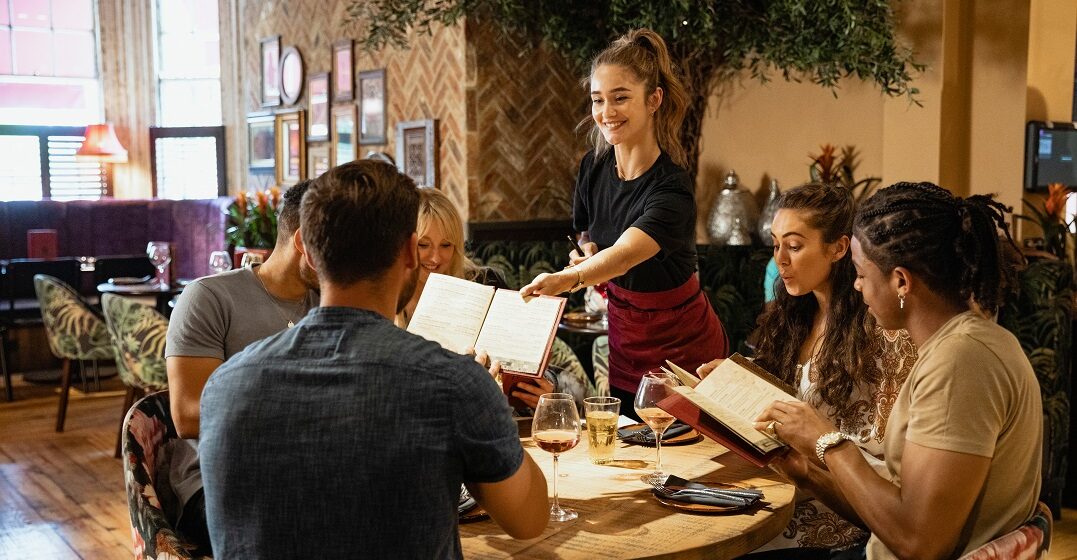by Anne Walther
Updated on October 15, 2024
Going to a restaurant in Germany is a sure way to experience excellent local cuisine and to try both regional and seasonal specialties.
In order to be a good house guest in the restaurant, there are some things to keep in mind when dining out in Germany that may differ from what you’re accustomed to. In this article, we will give you a short rundown on the basics of restaurant etiquette, as well as how to order or ask for the bill in German.



Let’s begin with the main topic of our article. There are many ways to ask for the bill in German:
The waiter will bring the check to your table and wait until you call them back to pay. Note that German restaurants don’t have a tip included in the price and tipping the waiter is highly recommended and appreciated. Depending on the size of your bill, a good rule of thumb is to tip between 5 and 10%. To indicate how much you are tipping, you may have to tell the waiter: For example, if you have to pay 9€ and want to tip 1€, you can say Machen Sie 10 draus! (“Make that 10”).
Pro tip: Bring cash! Even nowadays, not all German restaurants accept credit cards.
In many countries, it’s common to wait at the entrance of a restaurant to be seated by a waiter, but this isn’t always the case in Germany. Oftentimes, guests can choose where they sit. And only after they’ve taken their seat, the waiter will come to the table offering the menu. You should note, however, that not all tables may be available: If you see a little card or sign that reads reserviert, then the table has been booked by someone else.
And while you might think it’s a faux pas to arrive with a large group without calling ahead, this usually isn’t a problem in Germany. If the restaurant is out of big tables, you can politely ask the wait staff if you can push some tables together or if they have extra chairs. Good news for parents: If you’re dining with children, many restaurants offer high chairs for toddlers and coloring books with crayons for older kids.



After sitting down, the waiters will often come over immediately to ask if you would like something to drink. In Germany, it is common to have a glass of beer or wine with dinner, as well as sharing a bottle of water with everyone at the table. Note that even though tap water is drinkable in Germany, restaurants usually don’t serve it. Because most Germans prefer sparkling water, that’s likely what you’ll receive by default, unless you ask for a bottle of still water (stilles Wasser).
After a big dinner, it’s also common in Germany to drink a herb bitter, known as Absacker. This strong liquor shot is thought to help you digest your food.
So, you’ve decided on a meal, but are afraid to mispronounce something? Don’t worry, in Germany, you can order by simply naming the number of the item on the menu, for example: “Ich hätte gerne die 10.” (I’d like to have number 10.)
When you visit a more traditional German restaurant, keep in mind that they’ll likely give you a variety of sides to choose from, like potatoes, fries or rice. When ordering, make sure you mention which side you’d like.
Aside from offering a wide selection of starters and appetizers, many restaurants will offer some slices of bread with butter before the meal. This is free of charge.
After the main course, the waiter may come to your table and ask if you would like to see the menu again to order a dessert; in some cases, however, you have to ask to see the menu again.
Did all that talk of restaurants make you hungry? We sure hope so, because despite what many people think, German cuisine has a lot more to offer than Currywurst. Knowing how to navigate the basic etiquette of dining out in German restaurants and knowing how to ask for the bill will surely help you make the experience even more enjoyable.



